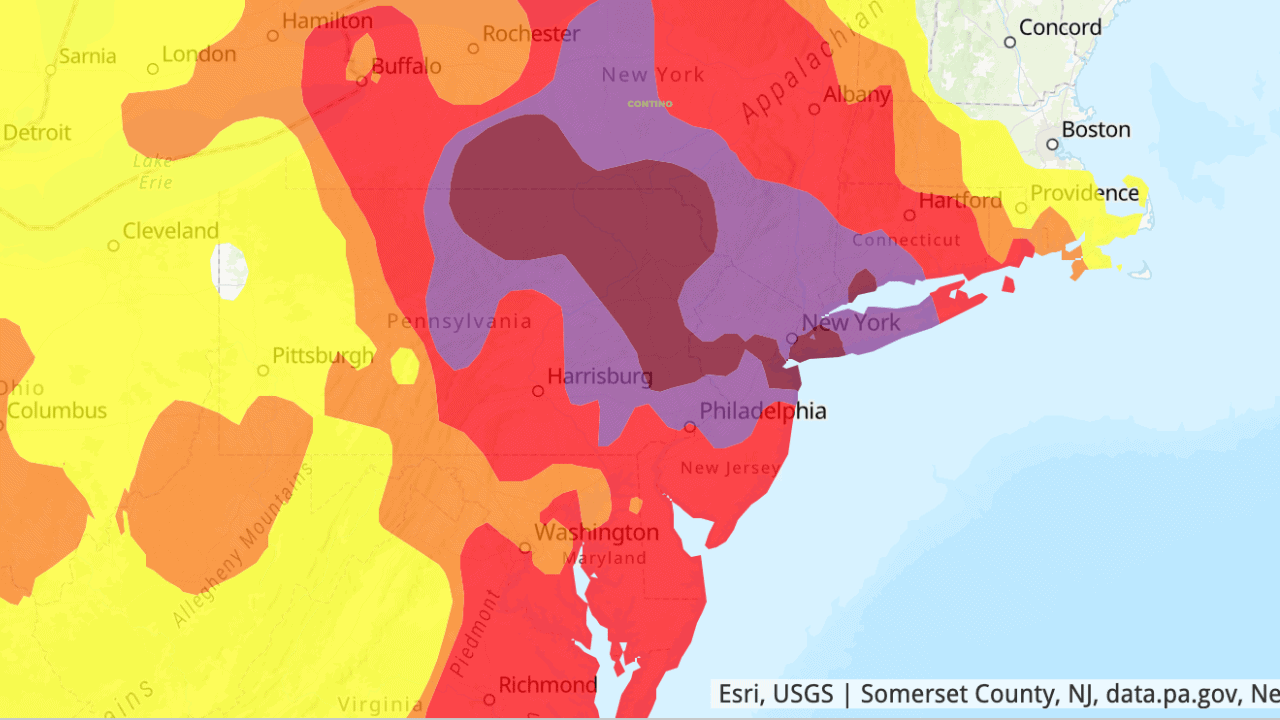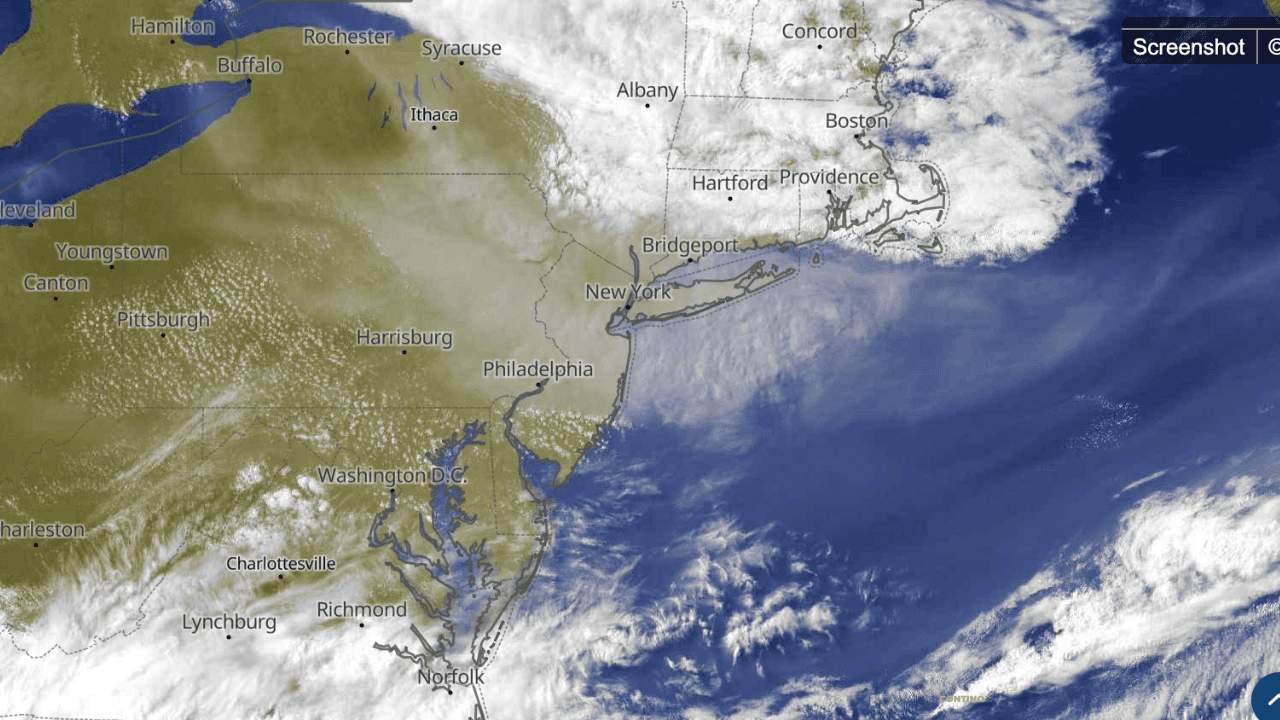Jersey Shore Air Quality Update
The air quality over New Jersey is currently experiencing severe deterioration due to the raging wildfires in Canada. The immense scale and intensity of these fires have resulted in a large plume of smoke and pollutants being carried by wind currents over vast distances, impacting urban centers far beyond the immediate vicinity of the fires.
Unfortunately, New Jersey is among the regions significantly affected by this transboundary air pollution.

Jersey Shore Air Quality Update
As the acrid smoke permeates the atmosphere, it introduces a multitude of harmful pollutants, including fine particulate matter (PM2.5), volatile organic compounds (VOCs), and nitrogen oxides (NOx). These pollutants pose significant health risks, particularly for vulnerable populations such as children, the elderly, and those with pre-existing respiratory conditions.
The high levels of PM2.5 can penetrate deep into the lungs, leading to respiratory problems, aggravation of asthma, and an increased risk of cardiovascular diseases.
Also See: Grocery Outlet Is Coming to Rio Grande
Officials rank the different kinds of air quality with the AQI, known as the Air Quality Index.

The AQI scale usually ranges from 0 to 500, divided into six categories or index levels, each representing a different level of air quality and potential health effects. The categories are as follows:
1. Good (0-50): Air quality is considered satisfactory, and air pollution poses little or no risk. The air is generally clean, and the majority of the population can breathe comfortably.
2. Moderate (51-100): Air quality is acceptable, but some pollutants may pose a moderate health concern, particularly for individuals who are unusually sensitive to air pollution. It is advised for sensitive individuals to limit prolonged or heavy outdoor activities.

4. Unhealthy (151-200): The air quality is considered unhealthy for the general population. It can cause health issues, especially for those with pre-existing respiratory or cardiovascular conditions. All individuals are advised to reduce prolonged or heavy outdoor activities.
5. Very Unhealthy (201-300): The air quality is very unhealthy, and even healthy individuals may experience adverse health effects. The general population should avoid outdoor activities, and sensitive individuals should remain indoors as much as possible.
6. Hazardous (301-500): This range represents the most severe air pollution conditions. The air quality is considered hazardous to health, and everyone, regardless of their health condition, is at risk of experiencing serious health effects. Outdoor activity should be avoided, and people are advised to stay indoors with proper air filtration if possible.
Also See: Tidal Flooding Causes Beach Erosion in North Wildwood
In addition to the numerical value, the AQI often comes with corresponding color codes (green, yellow, orange, red, purple, maroon) to provide a quick visual reference for the air quality level.
While New York City has in Hazardous sitting at 341 at 3pm, South Jersey is getting much lower numbers.
Parts of North Jersey are sitting at 315, Central Jersey is at 261 and South Jersey is sitting at a 162.
While 162 is still low, officials are still advising that residents should minimize outdoor activities and stay indoors whenever possible.

Photos and videos from the Wildwood Boardwalk do indicate very low haze but is still a beautiful beach day.
Efforts are underway to combat the wildfires in Canada and alleviate the long-lasting effects on air quality.
However, until these efforts succeed, New Jersey and NYC residents will continue to bear the burden of compromised air quality, serving as a stark reminder of the interconnectedness of our environment and the need for global action to address climate change and its devastating consequences.
